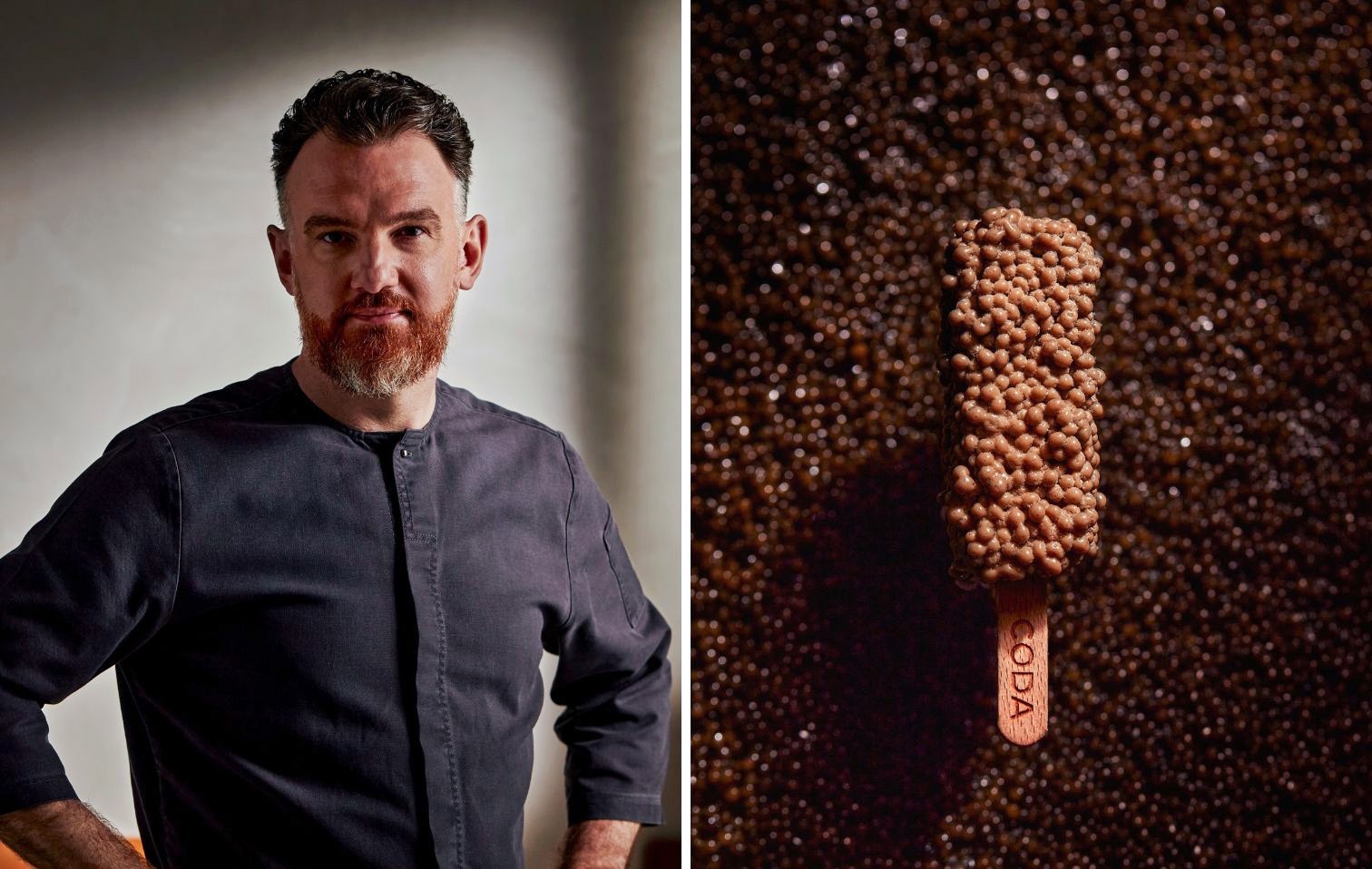“Ours are not just desserts. They are a complete gastronomic experience, built on unconventional ingredients, with the structure, depth, and complexity of a savory menu, but made using pastry techniques.” René Frank and the revolutionary concept of CODA.
Photo credits: Claudia Goedke
The restaurant and the chef
Berlin, only this city so alive, different, full of greenery and rich in connections, where hiding or being found are equally valid, heterogeneous in its places and ways, theater of the memory of that tragic paradox of concrete and iron torn down in 1989, child of inhumanity, so absurd and dramatic. Only Berlin, open, secular, and powerful, could welcome an idea like that of René Frank, a pastry chef who seems anything but a simple pastry chef, with all due respect to the profession. Coda is the last part, the appendix of many animals' bodies, the finale of a piece of music, the end of a meal. In Frank's case, Coda is the beginning and end of an exciting gastronomic journey, in which dessert and sweet are terms that do not contain or explain, at least not entirely, the concept.
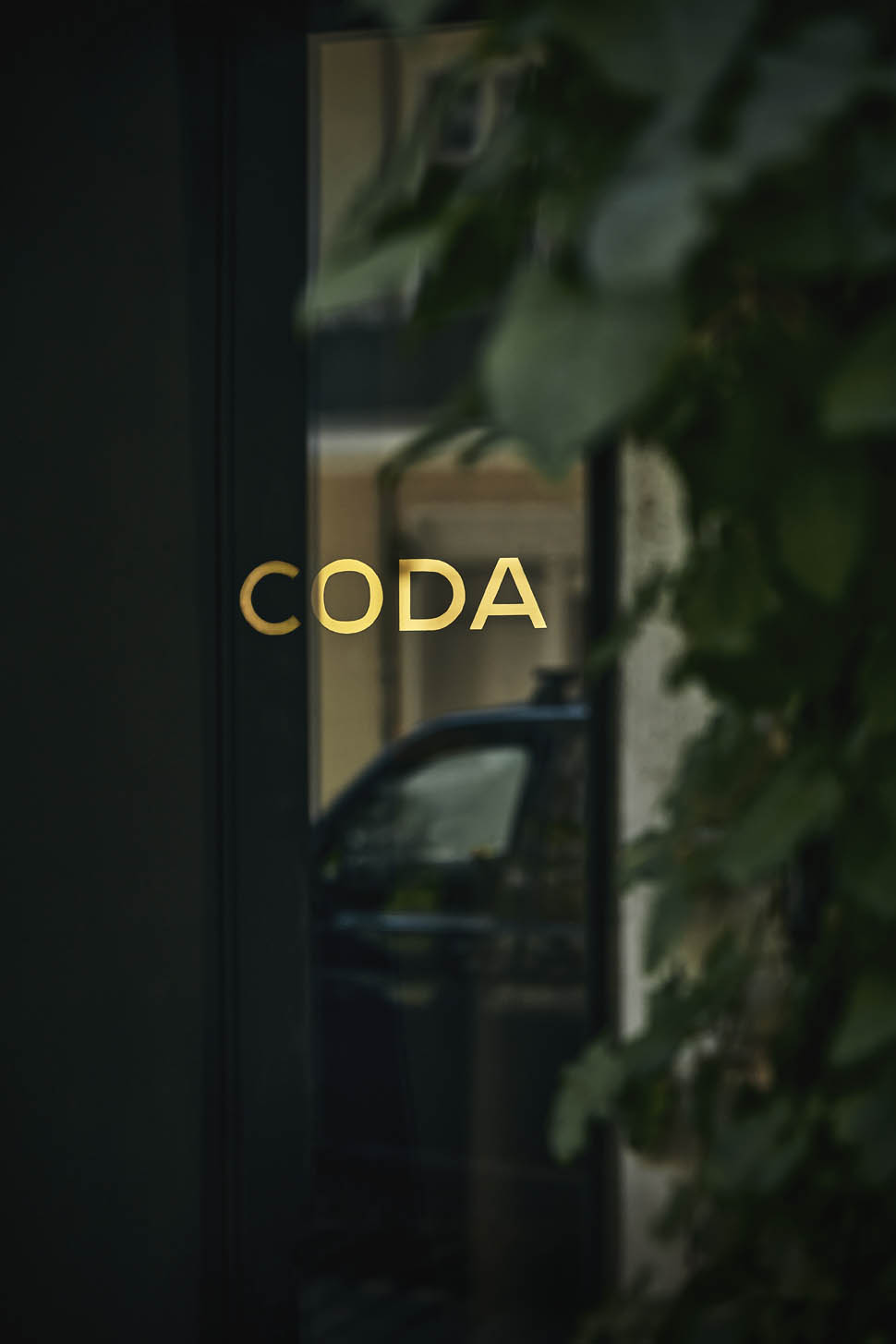
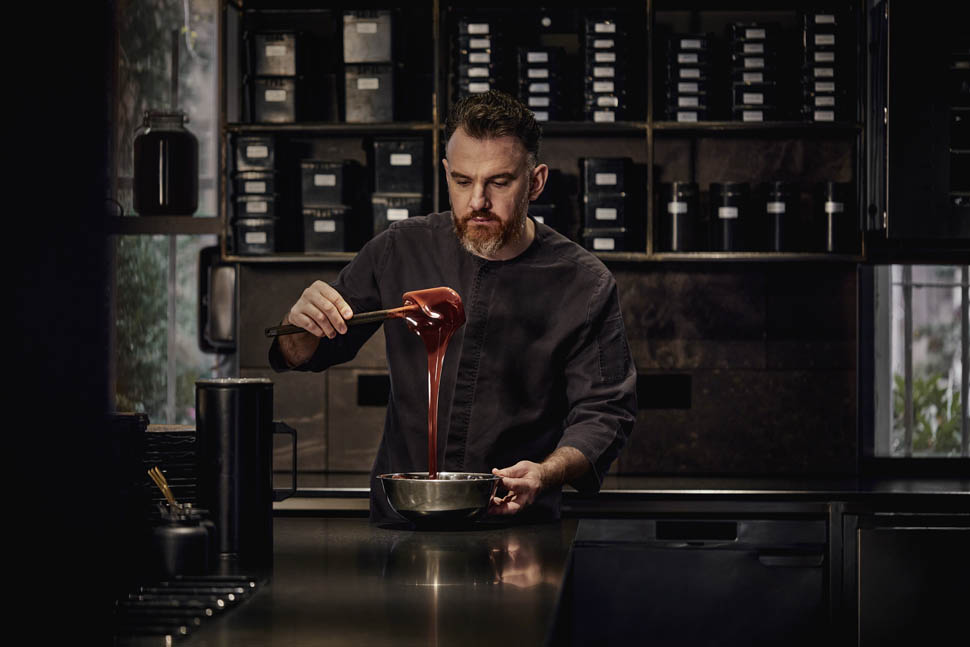
It is true that, along with countless other titles, this German chef, born in 1984, was named Best Pastry Chef by both The World's 50 Best Restaurants in 2022 and The Best Chef Awards two years later, but when you sit down at the table and begin that journey of fifteen courses, it is impossible not to change your parameters on the boundaries between sweet and savory, with a surprising series of technically perfect and remarkably delicious twists and turns: the impression is that of being in front of an extreme perfectionist who at the same time retains a rebellious creative soul. Something that stays in your mind, in a gastronomic world populated by similar trends that give rise to dishes that are often very good but tend to be repetitive. On the professional front, René's career has been marked by significant milestones, such as Oriol Balaguer, a renowned chocolate maker in Barcelona, Akelarre in San Sebastian, Lampart's in Switzerland, Georges Blanc, Nihon Ryori RyuGin in Tokyo, Kikunoi in Kyoto, as well as visits to the Centre de Formation di Alain Ducasse and the Culinary Institute of America.
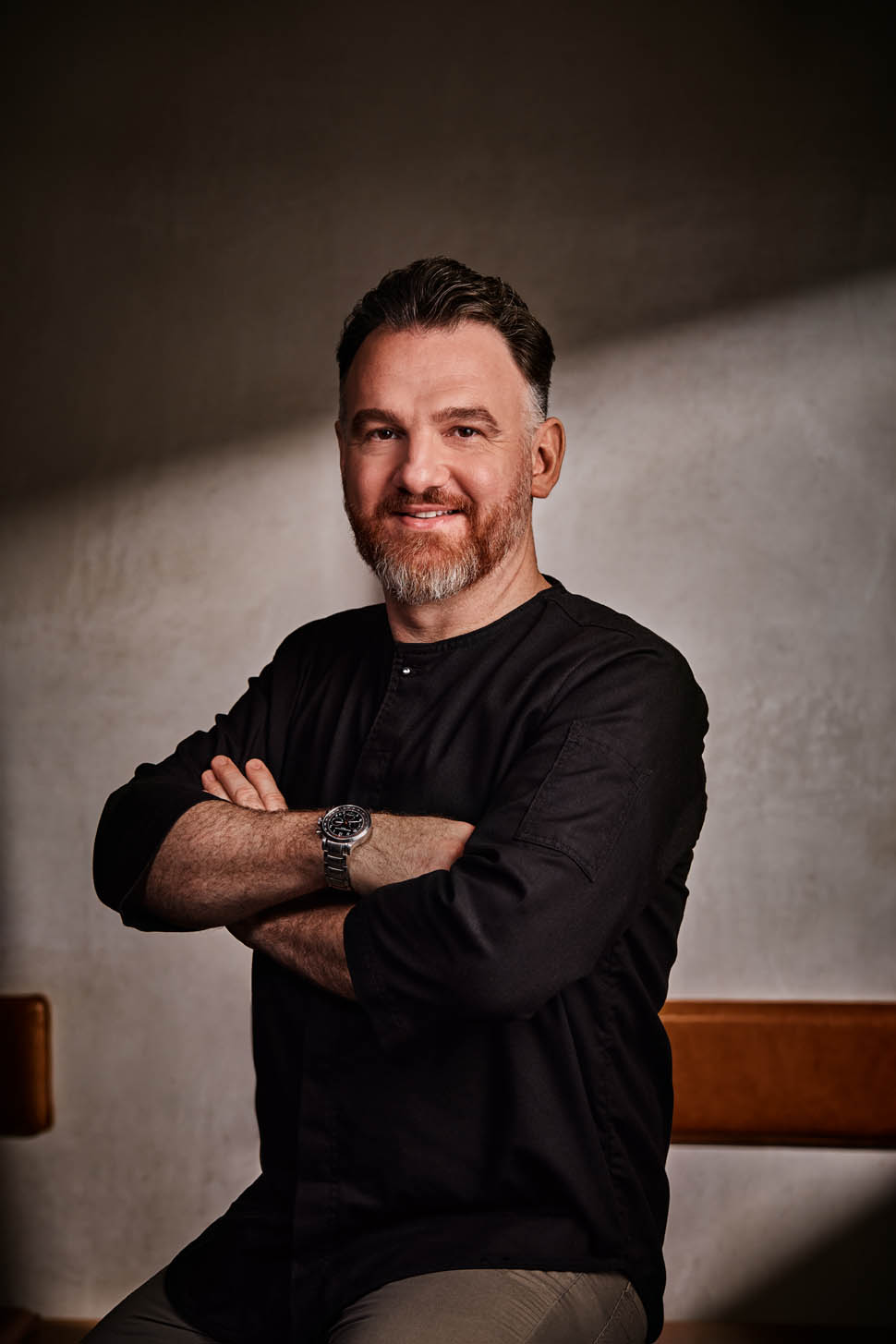
We asked him which of these experiences had been the most formative: "Honestly, all of them: every place has shaped me in a unique way. In Switzerland, I learned precision and discipline, while France allowed me to discover the richness of ‘bourgeois’ cuisine and the elegance of classic luxury ingredients. Japan completely transformed my perception of umami, texture, and finesse, while Spain encouraged me to think outside the box, always be curious, question everything, and explore new ways of thinking.“ Another question we asked ourselves is related to this somewhat daring idea of creating a menu based entirely on desserts: ”The development was quite organic. About ten years ago, I had the idea of creating a dessert bar, something casual and accessible, challenging the idea that desserts had to be so sweet or simply the final course of a fine dining menu. In short, I felt that desserts deserved their rightful attention. There was never a plan to open a restaurant that could aspire to two Michelin stars; it evolved naturally. It grew with the team, with our guests, and with the constant curiosity that drove us forward." CODA opened in 2016, with Frank joined by Julia A. Leitner as head chef and co-founder and business partner Oliver Bischoff.
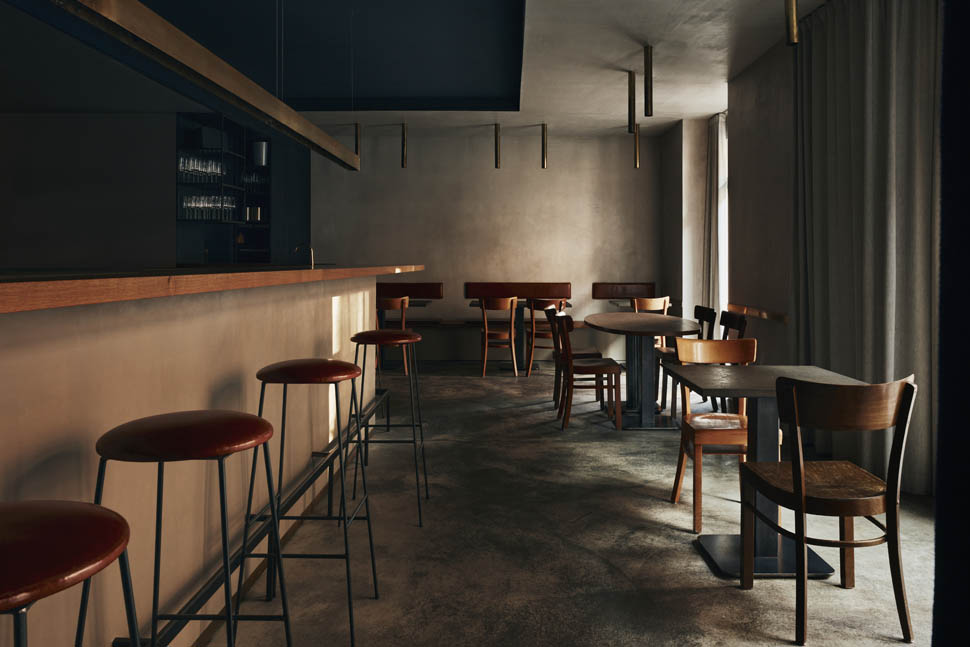
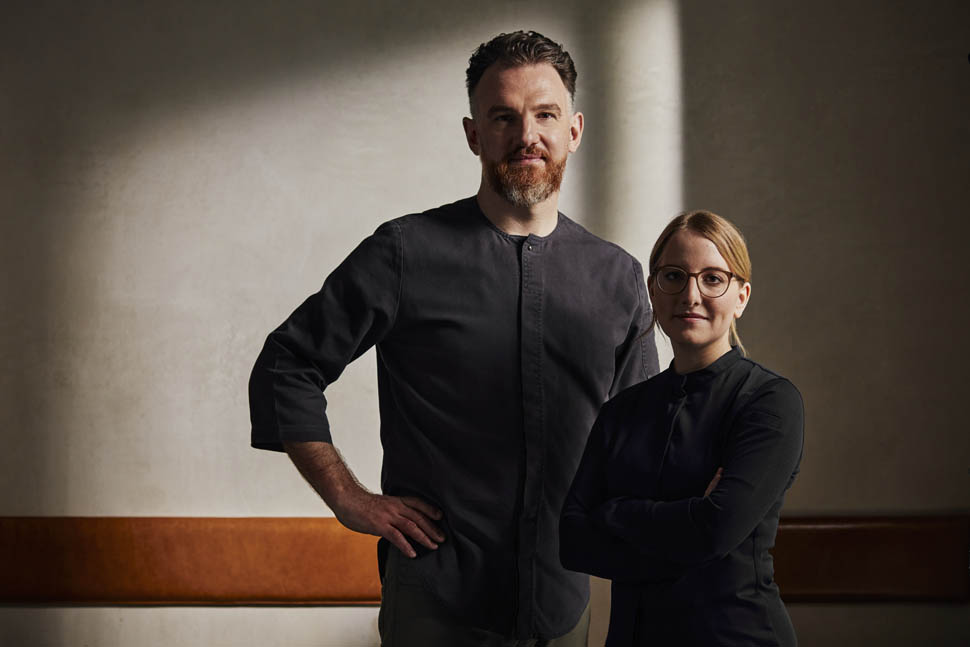
The philosophy
One of the most important challenges faced in launching the restaurant was communication, or rather "finding the right way to explain what we were doing and what we do, every time the format evolved. This is because we don't fit into a standard category, so it took time to develop a language and narrative that would help people understand that ours are not just desserts. It's a complete gastronomic experience, built on unconventional ingredients, with the structure, depth, and complexity of a savory menu, but made with pastry techniques.“ René adds: ”After almost ten years, I feel that we have finally defined CODA's unconventional style. Now it's about refining it and adding a final layer of depth that makes it truly uncategorizable. We want to go beyond traditional restaurant structures and create something holistic, an experience so cohesive and unique that it cannot be compared to anything else."
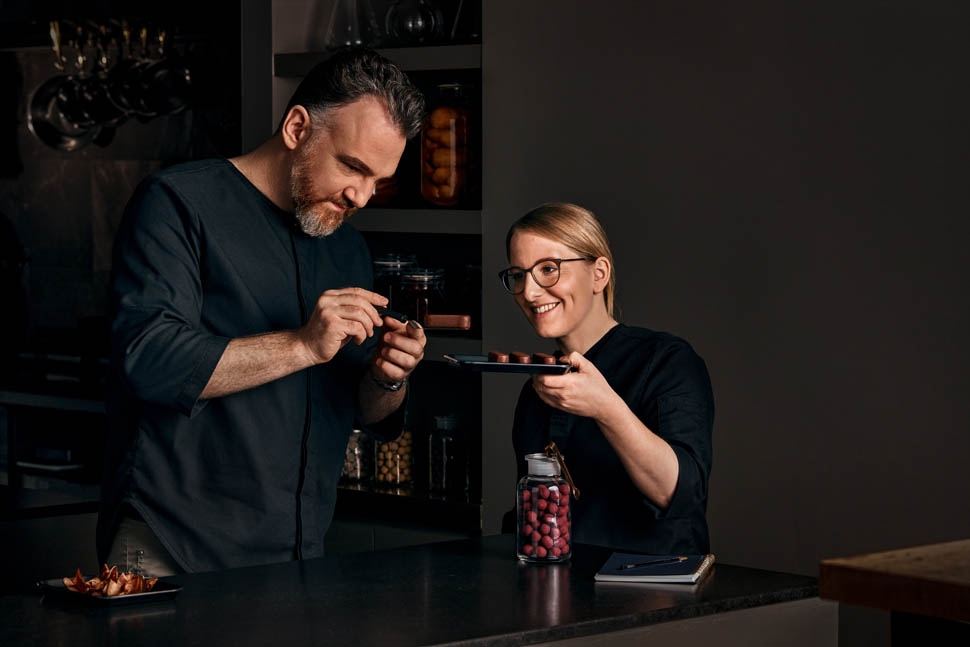
His project is certainly ambitious, but also credible, especially after experiencing firsthand (or rather, tasting and enjoying) what his words mean: "I think many people still associate pastry chefs mainly with sugar and decorations. But I've never been interested in sweetness for its own sake. What drives me is the balance, precision, and creative freedom that comes from working outside the boundaries of classic pastry making. I'm drawn to creating intentionally, using pastry as a means to push the boundaries of taste." The rigor of René Frank and his team in the kitchen also extends to the use of local, 100% organic products from ecological and sustainable supply chains. This means seasonality and preservation, and a total absence of industrially processed ingredients or ingredients from intensive farming. Since the beginning of 2024, CODA has been a member of the “Die Gemeinschaft” association, which is committed to sustainability in the restaurant industry.
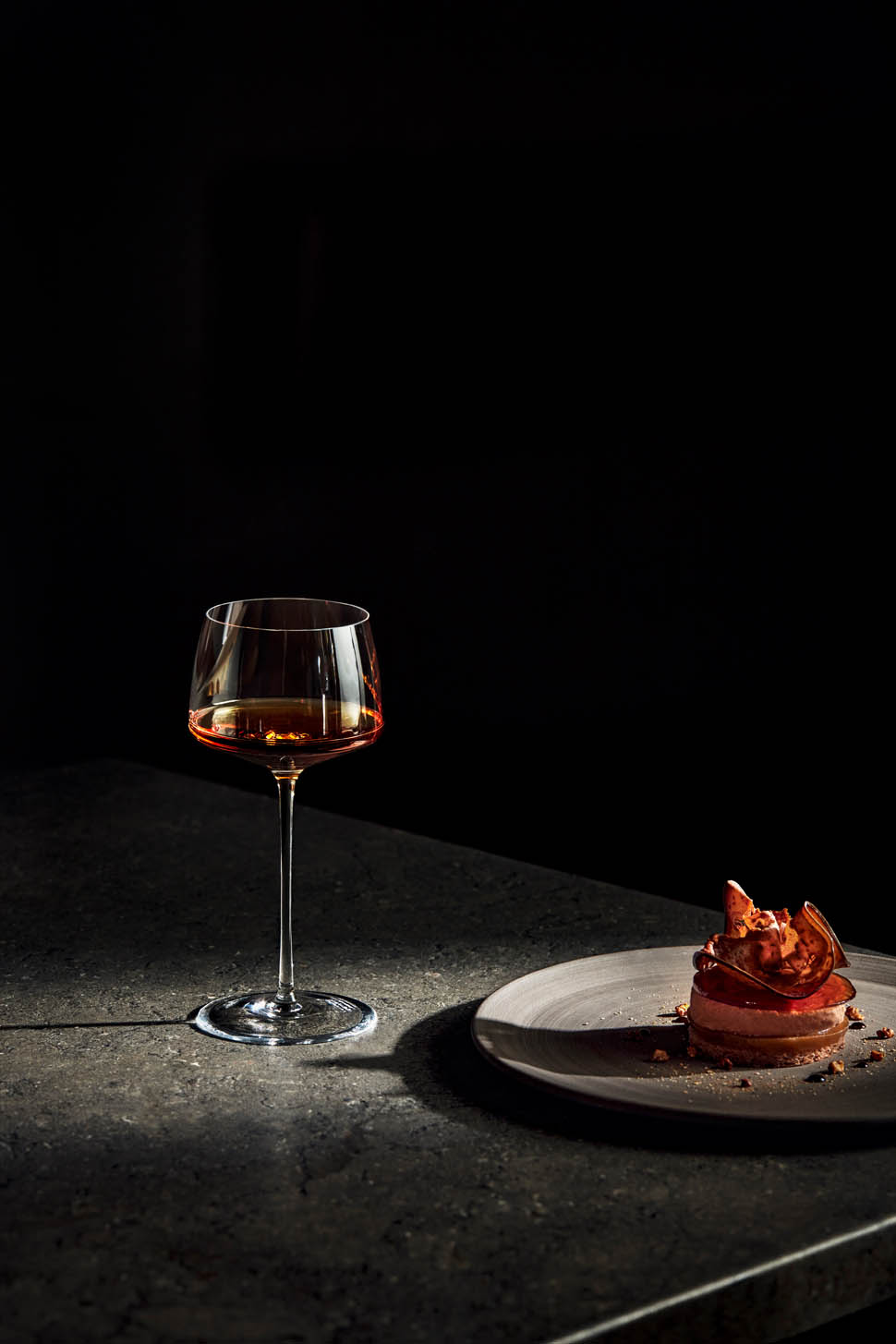
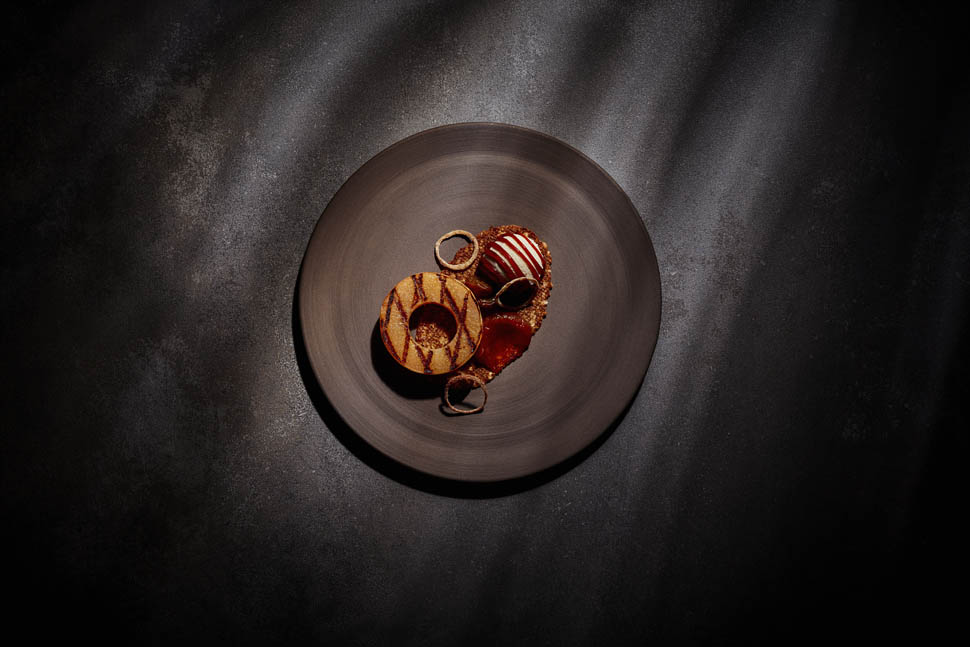
Everything on the menu is designed with extreme care, including the pairing, whether alcoholic or non-alcoholic, with very flexible options that include wines from a well-structured list, homemade infusions, and sake. The experience is definitely in line with the (high) expectations that inevitably arise when dealing with such a ‘different’ place. The dishes make the most of the powerful umami notes of certain legumes, mushrooms, and fermented rice, while the sweetness is natural and comes from fruit and vegetables, never from added sugars. There are also bitter and aromatic herbs, savory notes from cheeses, and completely unconventional combinations. You will be left with an indelible memory of a sequence designed with great intelligence.
The dishes
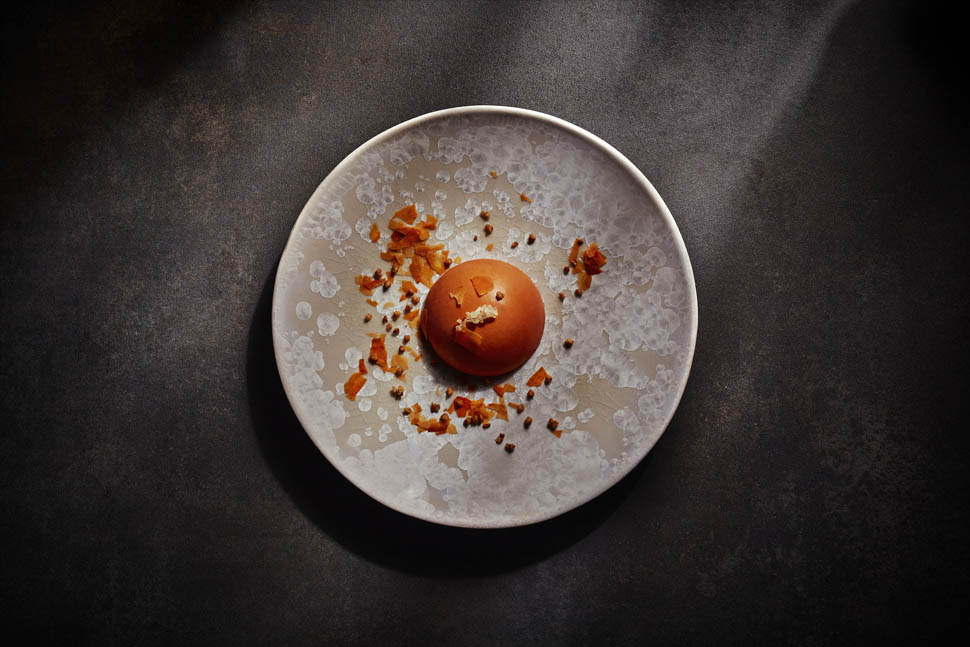
It would be worth describing each dish individually, but even better would be to visit Berlin to taste delicious creations such as carrot and green, an idea based on the natural sweetness of carrots. A frozen shell made from reduced carrot juice is filled with hay milk yogurt mousse. It is paired with Piedmont hazelnuts and a ginger and finger lime confit. On top, created in the natural shape of a carrot, is grated ‘chocolate’ made from the leaves. Finally, a rich jam of reduced carrots is enriched with vanilla. It is paired with a sea buckthorn and almond brandy, with the addition of vermouth and verjus. Buttercream, plum, walnut, and dulce seaweed is a walnut shortbread garnished with semi-dried plums and glazed with an intense reduction of the same.
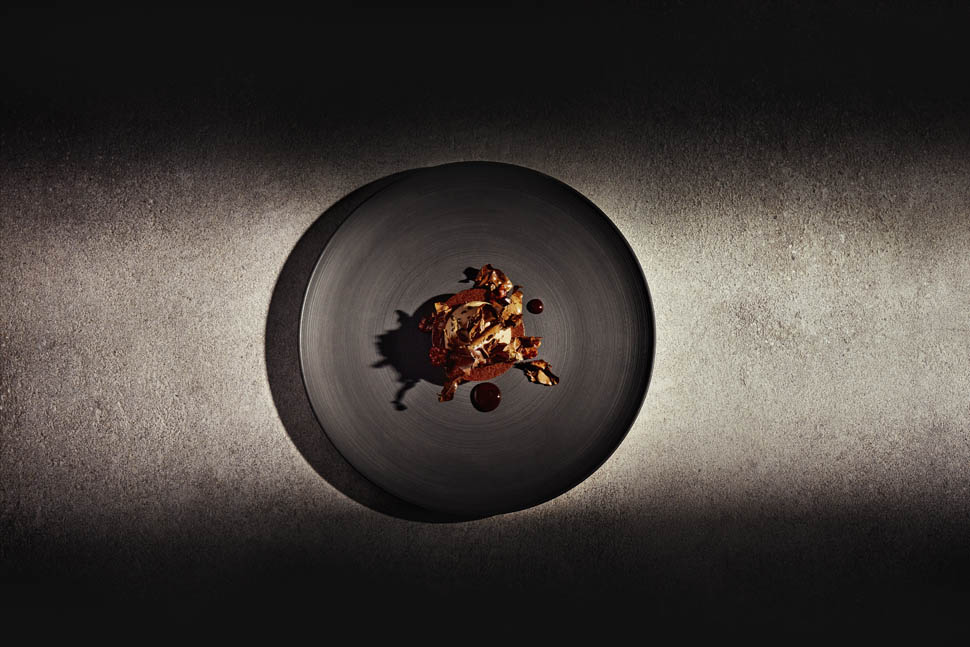
Plum skins are turned into crispy chips. The dish is served with a wonderful miso butter cream, caramelized coffee and walnuts, and fried dulce seaweed, which adds a smoky aroma reminiscent of bacon. Barbeito Madeira with Chinese black tea is the accompanying drink. The caviar popsicle is one of those dishes that stays in your heart, with an unparalleled seductive complexity. At its heart is a pecan ganache, wrapped in Jerusalem artichoke and Madagascar Bourbon vanilla ice cream. The whole thing is covered with 12 grams of Oscietra caviar from Sturia (Aquitaine, France) and finished with pecan chocolate: remarkable.
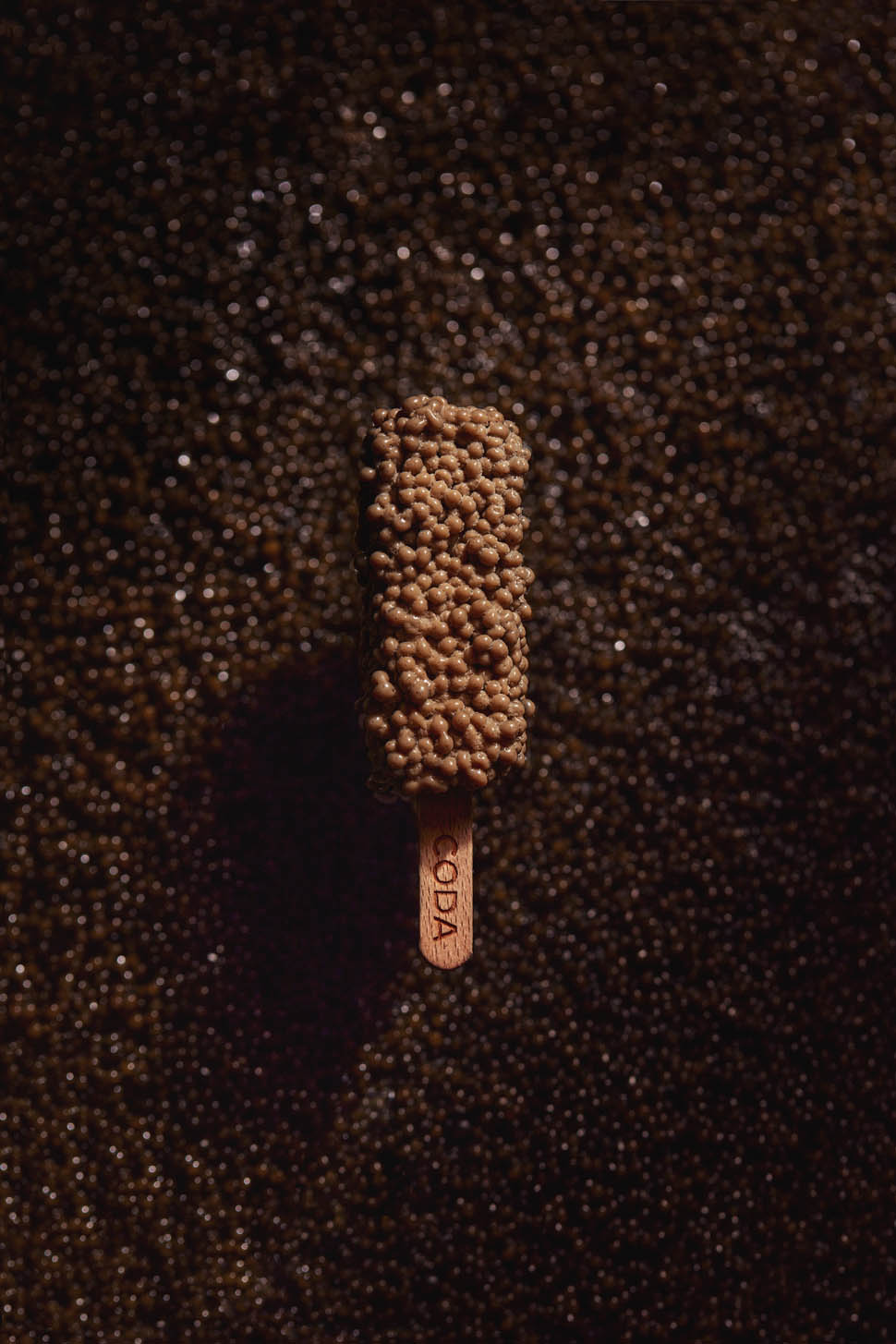
Dike cheese tart is a semi-baked tart with Dike cheese from Backensholzer Hof in northern Germany, aged under the North Sea dykes, which gives it a deeply umami flavor. It is accompanied by fig confit, Taggiasca olives, and a butter and marrow chantilly cream—yes, marrow: pure indulgence. It is served with rye whiskey, Manzanilla sherry, and Ruthje tomato juice, which is full-bodied, fruity, and flavorful. There are many other surprising dishes, such as brioche with Gouda and turnip greens, raclette waffles with kimchi and yogurt, and parsley root with black garlic and pistachios. These are gastronomically significant moments that are not to be missed.
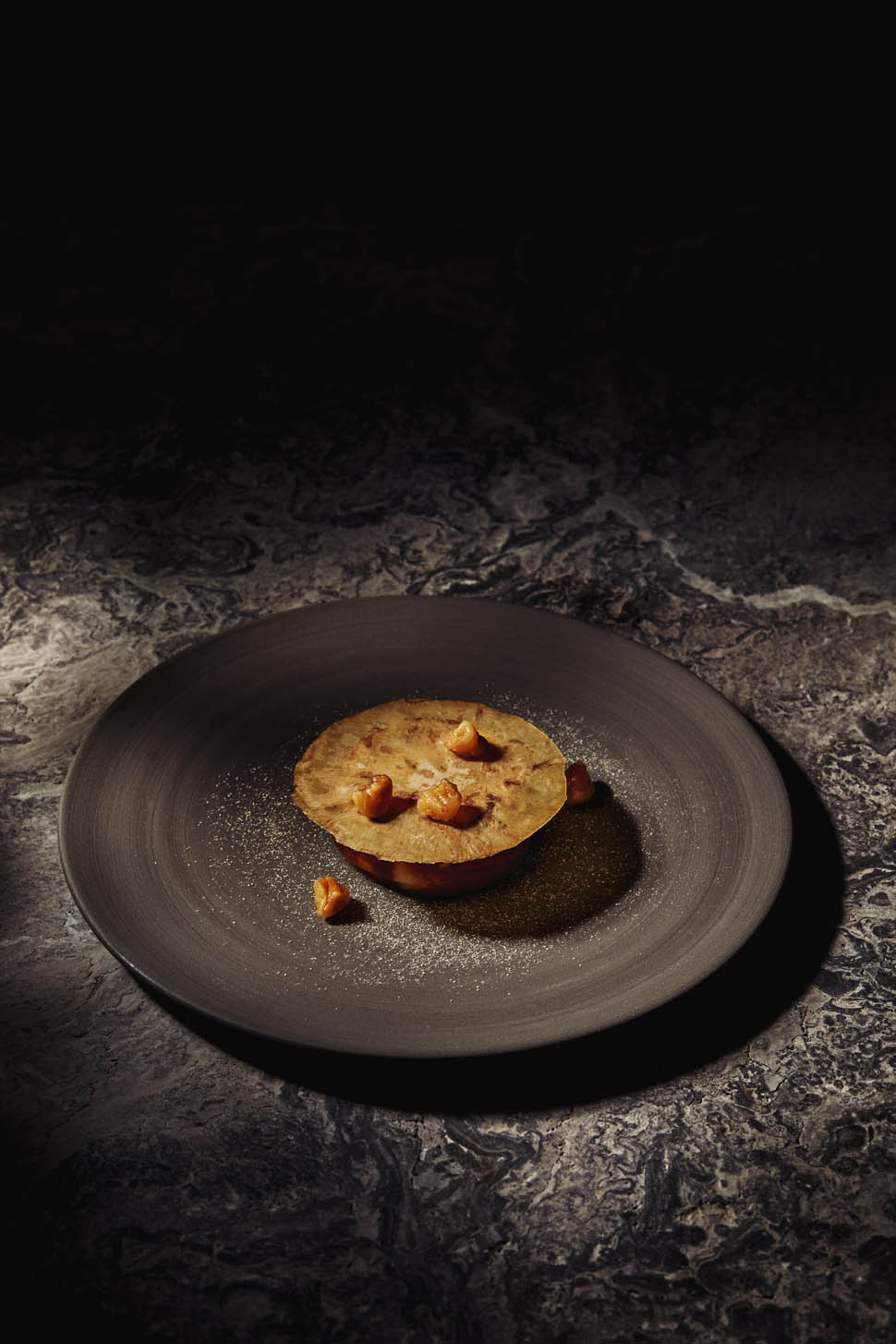
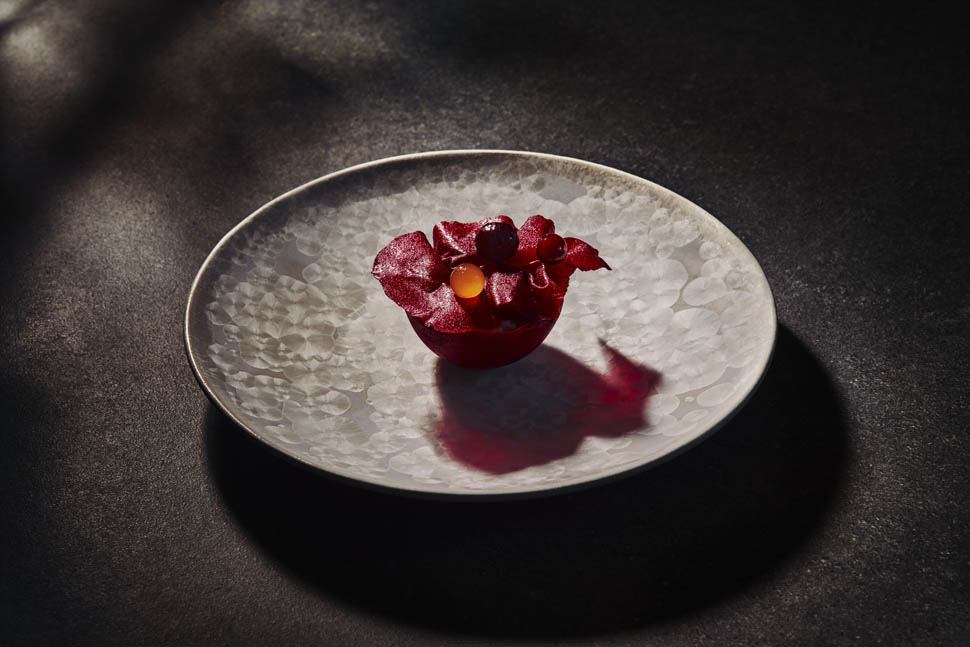
Contacts
CODA Dessert Dining
Friedelstraße 47, 12047 Berlin, Germania
Phone: +49 30 91496396
